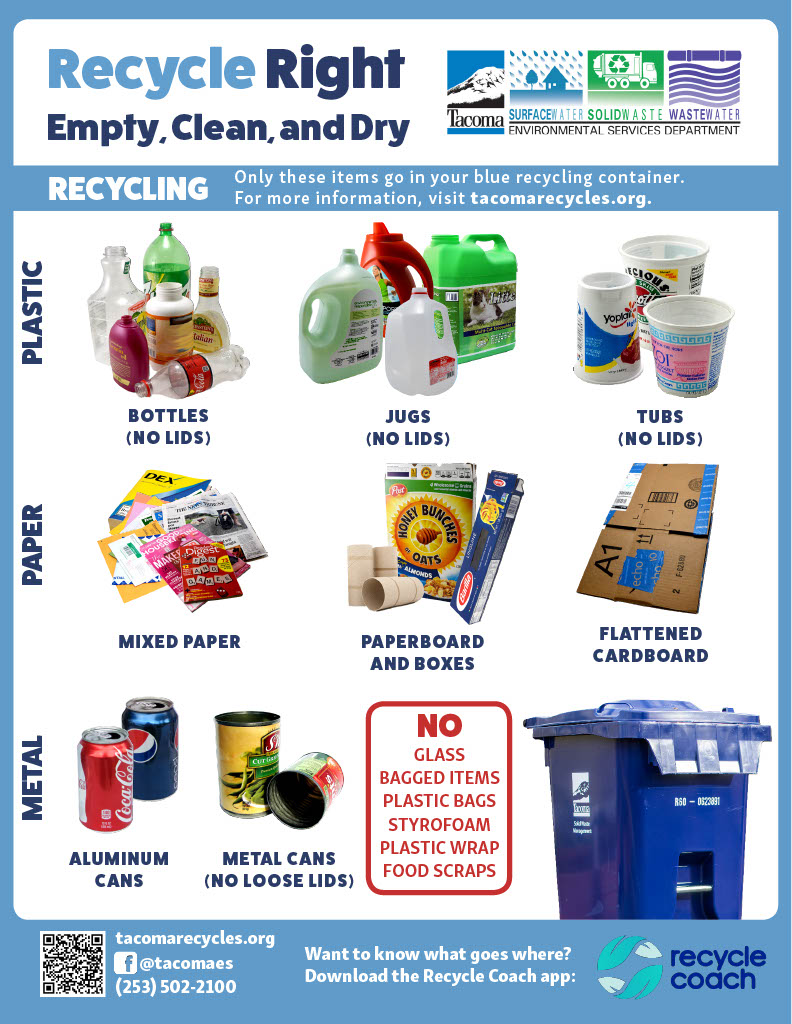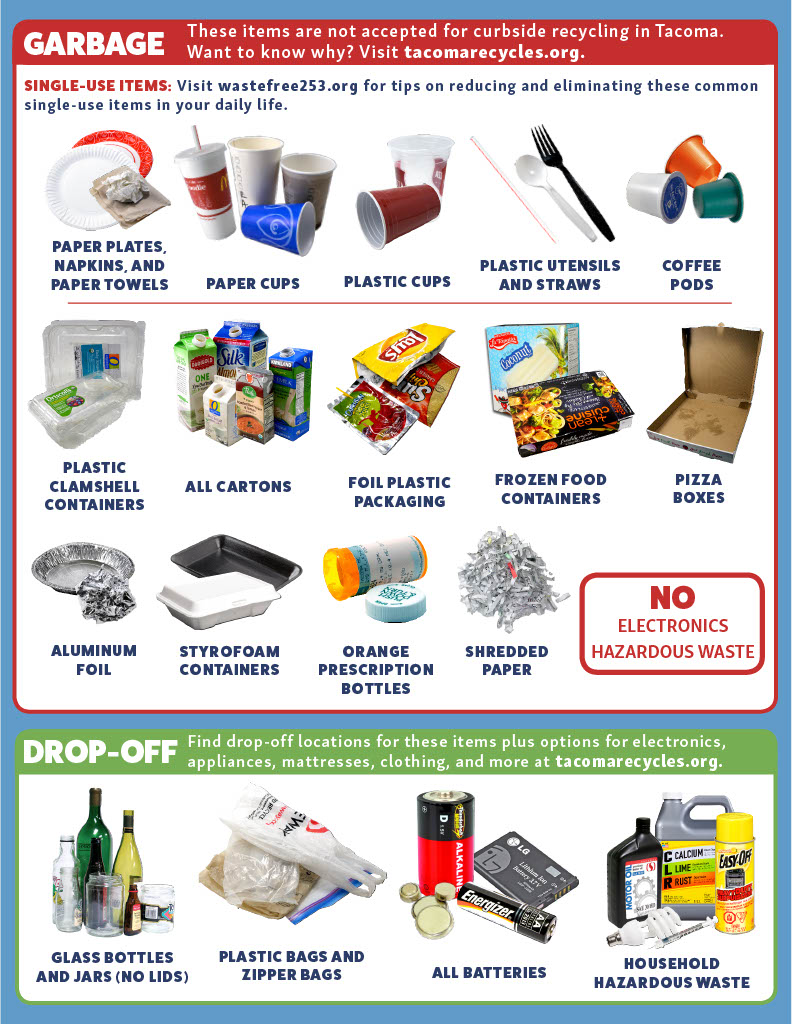Waste Diversion
The Waste Diversion department is a largely student operated department as a part of Environmental Services. If you see a student carrying a bag full of recycling, or trading out your office compost, that’s a Waste Diversion technician!
The Waste Diversion department focuses on maintaining the university’s waste diversion practices, including recycling and compost, in an effort to improve the campus waste diversion rate.
Move-In 2024
Here is the comprehensive Move-In guide for recyclable/trash items. You may also download a copy from the quick links tabs on the right side of this page.
The Waste Diversion Ethic
Typically when discussing waste diversion most refer to the three R’s, “Reduce, Reuse, Recycle.” In the Waste Diversion Department at PLU we work towards the five R’s, which add, Refuse and Repair to the three R’s. For more information about the five R’s and how they might be utilized in your life, check out the tabs below.
Reduce the amount of waste you generate. Make sure you know plan when you will use items that might go bad (such as food), and consider the amount of packaging that comes with your purchases that will just be thrown away.
Ways we’ve worked to make it simpler to reduce at PLU include:
Campus Restaurant’s Green Box Program, which encourages the campus to purchase reusable to-go food containers
The One Less Cup campaign which encourages the campus to bring their own mugs to the campus restaurants to get a 25 cent discount on their drinks
The Take Back the Tap program, which encourages students to utilize reusable water bottles (such as the Nalgene bottles available at the SurPLUs store), and the multitude of filtered water bottle refill stations across campus
Refuse to purchase items that have a harmful impact on the environment. This can mean items that have a short life span, or items that contain harsh chemicals, or other detrimental ingredients.
Refuse to buy new products, when you can buy used at thrift stores (such as PLU’s own SurPLUs store!) Refuse to buy products that you don’t need that will quickly end up in the landfill.
Stop using disposable items and opt for reusable ones instead! Buy a reusable water bottle (take back the tap nalgene bottles are on sale in the SurPLUs store) and use one of the many water bottle refill stations around campus. Bring your reusable mug to the coffee stands around campus and get 25 cents off your drink! Use a reusable shopping bag instead of getting a paper or plastic bag every time!
Also, consider putting other items to good “reuse” by donating them if you no longer need or want them. PLU’s SurPLUs store accepts a variety of donations, as do other thrift stores in the area! Donate, and pick up a few items you may need at these locations instead of purchasing new, to give these items a longer lifespan!
Repurposing items is similar to reusing, except repurposing often takes the item that was once used for one purpose and then uses it for another; sometimes this requires a little alteration. Oftentimes this process of re-purposing is referred to as “upcycling” and is commonly used in popular DIY (do it yourself) projects.
Repurposing items can be as simple as using a peanut butter jar as a leftover food container and as complicated as creating a reusable shopping bag from old jeans! Come check out PLU’s SurPLUs store for some items just begging to be repurposed!
You can also consider items repurposed if you simply repair ones that have become unusable when the break, or if you refurbish items for the same use, but with a new and improved look!
Recycle items that you can’t reuse, or repurpose! This will help reduce the amount of waste that ends up in our landfills. At PLU we also consider composting as a part of recycling, as it “recycles” the nutrients in food and yard waste by allowing them to cycle through natural systems.
For more information on what and how you can recycle at PLU check out this recycle poster.
Sustainability
The Waste Diversion department is only one component of Sustainability on PLU’s campus. For more information on other Sustainability focused departments, projects, and more, please visit the Sustainability at PLU website.




